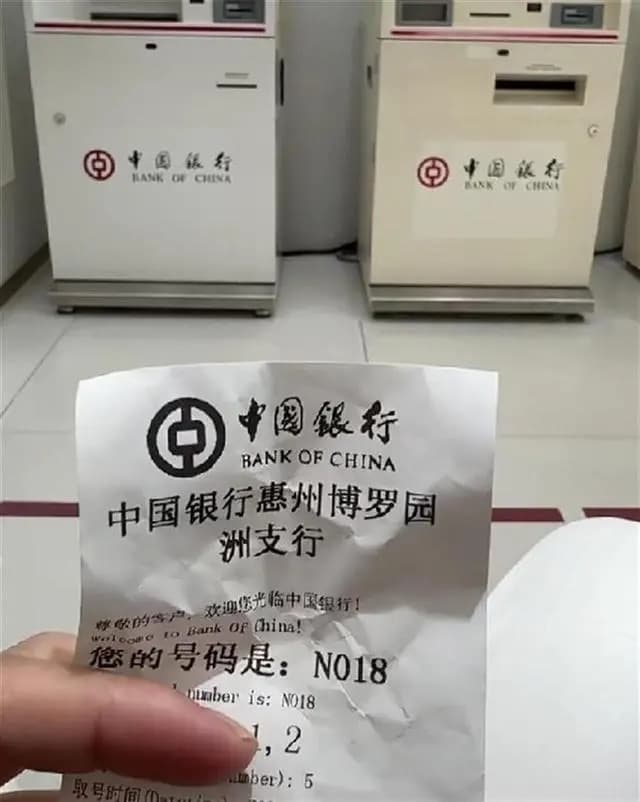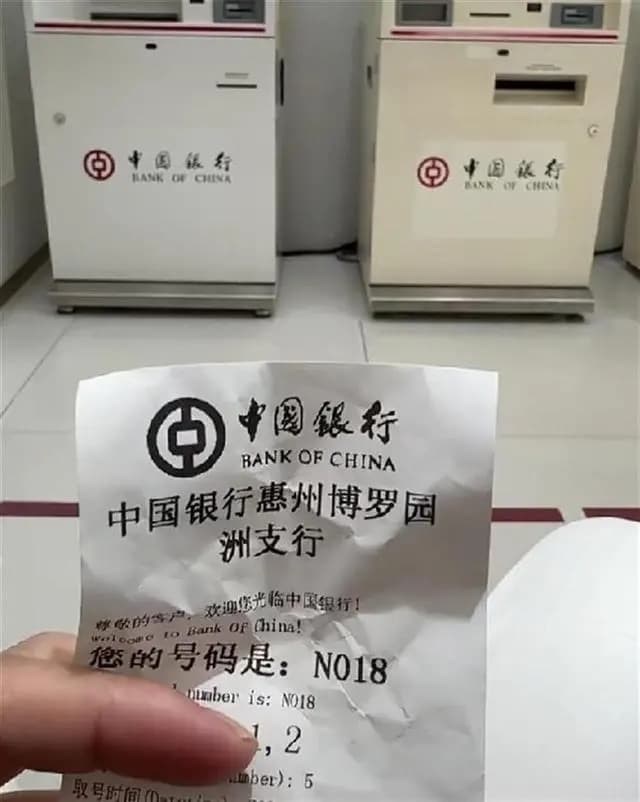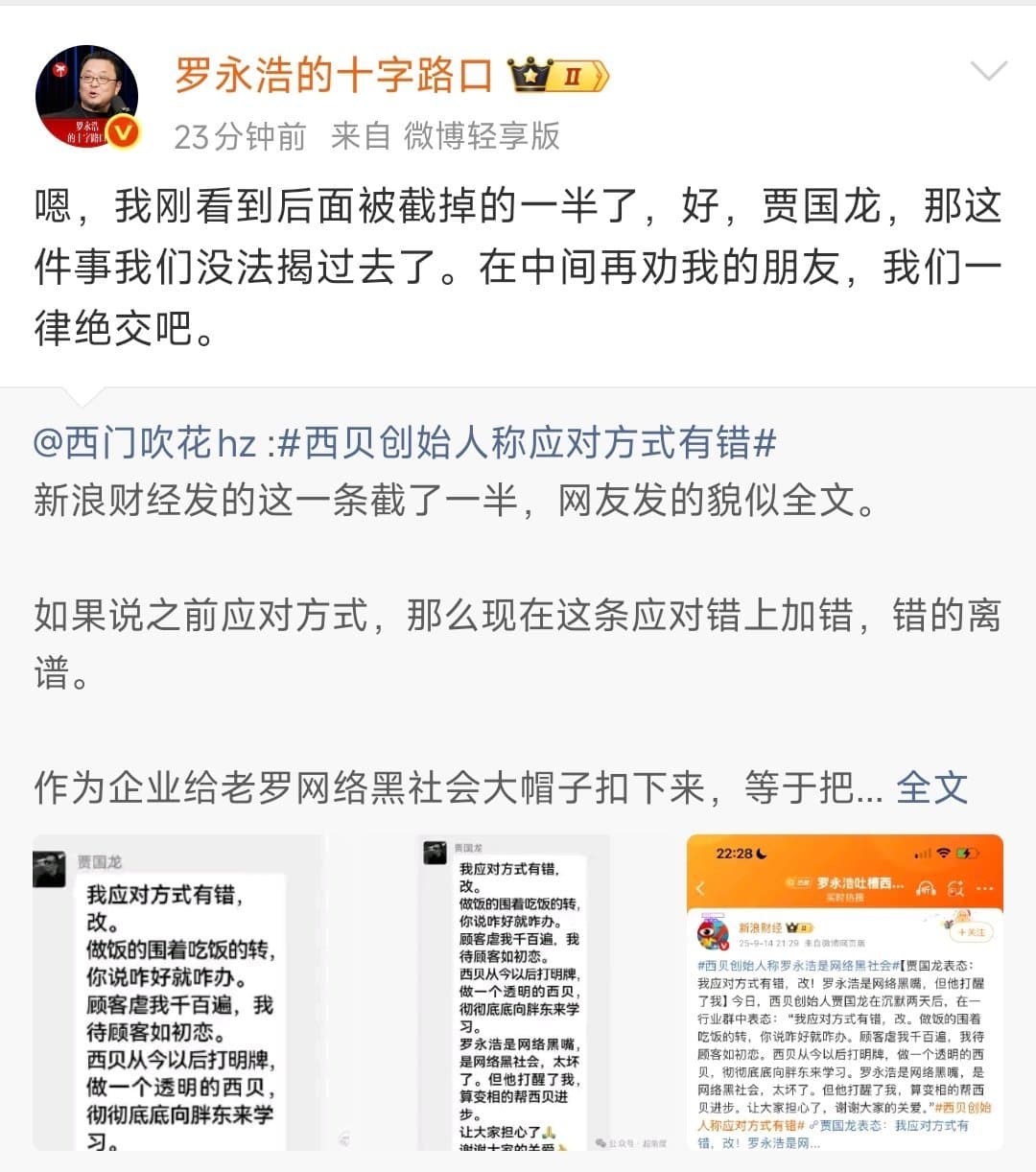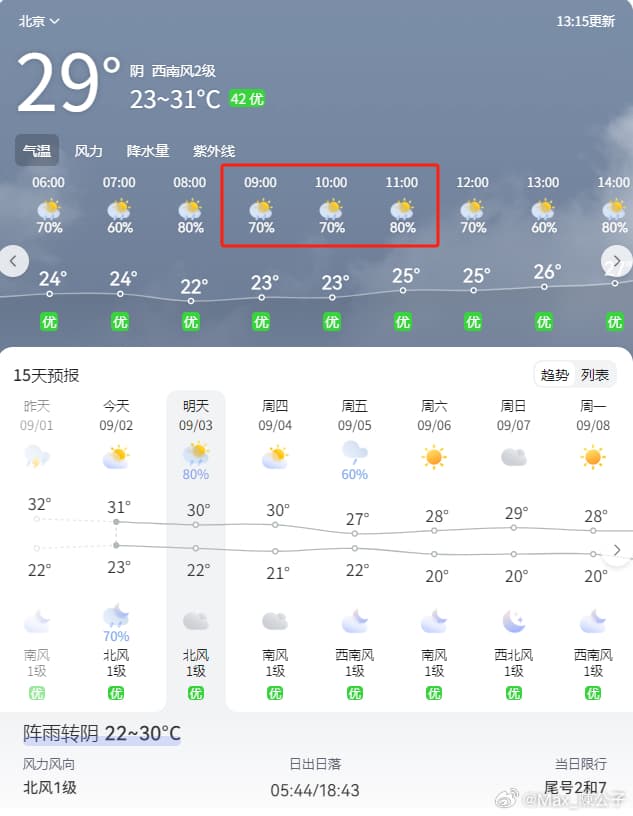Bank of China's Crackdown on Withdrawals Sparks Outrage Over Anti-Fraud Measures
A recent incident at a Bank of China branch in Huizhou, Guangdong Province, has sparked widespread controversy online. A customer attempted to withdraw 100,000 yuan from their account but was only allowed to take out 3,000 yuan. The bank demanded a third-party proof of identity before releasing the remaining funds, citing anti-fraud measures as the reason.

29 September 2024
This incident has raised concerns among netizens, with many expressing frustration and outrage on social media. Critics argue that such restrictions infringe upon the principles of voluntary deposit and free withdrawal, which are fundamental rights of depositors. Others have questioned the bank's motives, suggesting that the restrictions may be a thinly veiled excuse for the bank's own financial management issues.
Many have pointed out that the bank did not raise any concerns when the customer deposited the money, but only when it came time to withdraw it. Some have even likened the bank's behavior to a Ponzi scheme, where the bank restricts withdrawals to avoid a run on the bank.

Commentators have also pointed out that such restrictions can have real-life consequences, such as hindering people's access to emergency funds for medical treatment or other urgent needs. Some have demanded that banks take responsibility for any losses incurred by depositors due to such restrictions.
The incident has sparked a heated debate about the balance between anti-fraud measures and depositors' rights, highlighting the need for greater transparency and accountability in the banking system.
A spokesperson for China Bank stated that the bank's actions were aimed at preventing fraud. The spokesperson explained that the bank has a responsibility to protect its customers' assets and prevent fraudulent activities, such as money laundering and scamming.
When asked about the specific incident in which a customer was only allowed to withdraw 3,000 yuan from their 100,000 yuan deposit, the spokesperson stated that the bank's staff were following standard procedures to verify the source of the funds. The spokesperson acknowledged that the customer had provided proof of identity and account ownership, but emphasized that the bank's staff had reasonable grounds to suspect that the funds may be related to fraudulent activities.
The spokesperson also noted that the bank has seen an increase in cases of scamming and money laundering in recent years, and that the bank is taking steps to enhance its risk management and anti-money laundering measures. "We understand that our measures may cause some inconvenience to our customers, but we must prioritize their safety and security," the spokesperson said.
However, some experts have questioned the bank's actions, arguing that the restrictions on withdrawals are overly broad and may be an overreaction. "While preventing fraud is important, it's also important to balance that with the need to provide customers with access to their own money," said one banking expert. "In this case, it appears that the bank may have gone too far."
Netizens have taken to social media to express their dissatisfaction, arguing that the restriction violates the fundamental principle of withdrawal freedom. One netizen pointed out that commercial banks are supposed to follow the principles of voluntary deposit, free withdrawal, interest on deposits, and confidentiality. "If withdrawals are not free, then deposits are meaningless," he argued. "Do banks have the right to do as they please under the guise of preventing fraud?"
Others have sarcastically remarked that banks only seem to care about preventing fraud when it's convenient for them. "They don't care about preventing fraud when you're depositing money, but when you want to withdraw it, they suddenly become concerned," one netizen said.
Some netizens have even drawn parallels between the bank's actions and a pyramid scheme. One popular Weibo account shared a story about a friend who ran a scam involving the sale of rice tickets, where the friend would restrict the number of tickets that could be redeemed each day, citing concerns about a rival merchant's alleged scam. The account owner wondered if the bank was using a similar tactic to avoid paying out withdrawals.
The restriction on withdrawals has already led to problems for some customers, including those who have been unable to access their money for medical emergencies. As one netizen pointed out, "If your friend lives far away, what's the point of having emergency money if you can't even access it?"
The public is calling for greater transparency and accountability from China Bank, and for the bank to respect the fundamental principle of withdrawal freedom. The question remains: who is responsible for the losses incurred by depositors due to the restrictions on withdrawals?
Experts argue that such restrictions are a clear violation of the principles of banking, which include the freedom to withdraw one's own money. "If withdrawals are not free, then deposits are meaningless," says Xia Xingfan, a financial analyst. The restrictions have resulted in significant losses for depositors who are unable to access their money in time, and there have been reports of depositors being unable to pay medical bills or cover emergency expenses due to the restrictions.
The banking regulator's silence on this issue has only added to the confusion and frustration among depositors. As one commentator noted, "If a bank can restrict withdrawals under the pretext of preventing fraud, then what is the point of having a bank account?" The public demands a clear answer from the banking authorities: who will bear the loss of depositors?
Comments







